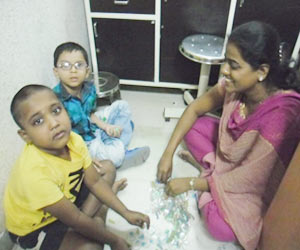Challenge-based adventurous outdoor programs in kindergarten may show promise in the treatment of autism, reveals study.
- Autism is a neurodevelopmental disorder which affects the communication and social cognition skills of children.
- A new study finds outdoor adventurous programs for children in kindergartens to be effective in reducing the symptoms of autism.
- Outdoor adventurous programs may show new hope in the treatment of autism.
Autism Spectrum Disorder
Autism is a neurodevelopmental disorder which is characterized by socio-communicative impairments along with restricted and repetitive interests.
Around one out of 68 children are diagnosed with autism spectrum disorder in the United States every year.
The developmental disorder may play a role on the social, economic and emotional toll on the child and the family.
However, early diagnosis and treatment of autism can help improve the cognitive functions and socio-communicative skills of the children.
The research study was conducted on around 51 children who were aged between 3-7 years from seven special-education kindergartens in Tel Aviv. Out of these 51 children, 30 students were found to participate in outdoor adventure program (OAP).
These children underwent 13 weekly sessions of challenge-based activities along with instructors. These 30-minute sessions took place in urban parks and started off with a song.
The cognitive skills of the children were assessed by the kindergarten instructors using a Social Responsiveness Scale (SRS), before the adventure program.
The information was also collected after completing the program. The activities were also designed in such a way that the children are able to communicate with the instructors for assistance.
Outdoor Adventure Programs
Professor Zachor, said, "Outdoor Adventure programs are designed to improve intrapersonal skills and interpersonal relationships by using adventurous activities to provide individual and group problem-solving and challenge tasks."
"The necessary tools for a successful OAP include establishing individual and group goals, building trust among participants, and providing activities that challenge and evoke stress but are nevertheless enjoyable.”
The study finds outdoor adventure activities to benefit children with autism and improve their social communication skills. Including fun activities in special education kindergartens and classrooms at school, in addition, can improve their symptoms.
Enrolling the children in afterschool activities can help cope with Autism, and allowing time for children to have fun during their leisure time can improve their communication skills.
The author also concludes that further research work is required to explore new treatments for improving social communication skills.
"We're interested in studying the long-term effect of this intervention, not just on ASD symptoms but on functioning in different domains, including behavioral problems, language skills, and attention span."
References
- Ditza A Zachor et al, The effectiveness of an outdoor adventure programme for young children with autism spectrum disorder: a controlled study, Developmental Medicine & Child Neurology (2016) DOI: 10.1111/dmcn.13337
Source-Medindia












